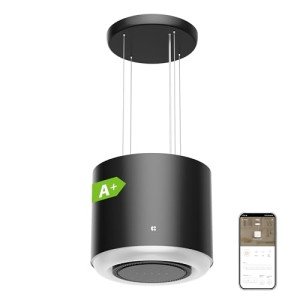Ten Things You Learned In Kindergarden That'll Help You With Island Ex…
페이지 정보
작성자 Frank 작성일 25-05-19 12:46 조회 5 댓글 0본문

Island Extractors: A Comprehensive Guide to a Unique Industry
In the world of extraction markets, couple of sectors record the imagination as vividly as that of island extractors. These specialized entities focus on the extraction of important resources, both sustainable and non-renewable, from island hood kitchen ecosystems. This short article looks into the multifaceted world of island extractors, discussing their operations, environmental impacts, and the future of this specific niche industry.

Comprehending Island Extraction
Island extractors are business or people that engage in the extraction of natural resources found on islands. This extraction can include a variety of materials, such as minerals, nonrenewable fuel sources, and even marine resources. Offered the unique environments found on islands, the extraction process can provide both chances and intrinsic difficulties.
Classifications of Island Extraction
island hood kitchen extraction can normally be classified into numerous classifications:
| Category | Description | Examples |
|---|---|---|
| Mineral Extraction | The removal of minerals from the earth | Kaolin, Bauxite, Iron Ore |
| Nonrenewable Fuel Source Extraction | Extraction of fuels formed from raw material over millennia | Oil, Natural Gas |
| Marine Resource Extraction | Collecting resources from oceanic environments | Fish, Seaweed, Shellfish |
| Sustainable Resource Extraction | Extraction of sustainable resources | Wood, Freshwater |
The Process of Island Extraction
The extraction procedure itself can vary substantially based on the resource in question. The procedures for drawing out oil diametrically differ from those for collecting seafood.
Steps in the Extraction Process
- Expedition: This phase involves geological surveys and initial research studies to evaluate the capacity of the resource.
- Laws Compliance: Compliance with regional and international environmental laws is essential to make sure sustainable practices.
- Extraction: This consists of drilling extractor Hood for island cooker hoods; git.fuwafuwa.moe, oil or mining for minerals, and can cause considerable disturbance to regional ecosystems if not managed effectively.
- Transportation: Extracted resources usually require transportation back to the mainland or other markets, typically involving using ships and barges.
- Post-Extraction Restoration: Efforts to bring back the environment post-extraction are vital to reduce long-lasting impacts.
Environmental Impact of Island Extraction
Offered the delicate nature of island ecosystems, the environmental impact of extraction activities can be considerable.
Secret Environmental Concerns
- Habitat Destruction: The physical removal of landscapes can devastate regional flora and animals.
- Pollution: Resource extraction can introduce toxins, resulting in ocean acidification, water contamination, and air quality degradation.
- Coastal Erosion: Activities can worsen seaside erosion, altering the natural landscape and affecting local neighborhoods.
- Biodiversity Loss: Extractors typically interrupt regional ecosystems, positioning native species at risk.
Mitigation Measures
To combat these effects, island extractors are increasingly embracing sustainable practices that include:
- Implementing more stringent environmental regulations
- Utilizing technology for more secure extraction procedures
- Carrying out thorough environmental impact evaluations (EIA)
- Engaging with regional communities during preparation and operation stages
The Future of Island Extraction
As worldwide need continues to increase for natural deposits, the future of island chimney hood extractors appears promising yet intricate. Several aspects will form the trajectory of this market in coming years:
- Technological Advancements: Innovations in extraction technology might cause more effective and less ecologically disruptive techniques.
- Regulatory Changes: As climate change becomes an ever-pressing problem, stricter policies might redefine extraction practices, prioritizing sustainability.
- Pressure from Environmental Groups: Increased advocacy for the defense of biodiversity and ecosystems can influence operational procedures.
- Shift towards Renewable Resources: A growing emphasis on renewable resource services may alter the focus from non-renewable extraction to sustainable practices.
Regularly Asked Questions
What resources are frequently extracted from islands?
Common resources extracted from islands consist of minerals, fossil fuels, lumber, freshwater, and marine resources such as fish and seaweed.
How do island extractors make sure sustainability?
range cooker island extractors can make sure sustainability by adhering to environmental policies, incorporating innovation that decreases impact, and bring back environments post-extraction.
What are the major challenges faced by island extractors?
Challenges consist of compliance with regulations, handling ecological impacts, Extractor Hood For Island logistical issues related to transport, and engaging with regional communities impacted by extraction.
Are there any notable island extraction tasks?
Yes, various projects exist globally, including mineral mining in the Caribbean, oil drilling in the North Sea, and sustainable fish farming efforts in Southeast Asia.
The world of island extractors is a complicated interaction in between financial opportunity and environmental duty. As this market evolves, the challenge will be to balance resource extraction with the requirement to safeguard fragile island environments. By welcoming sustainable practices and engaging with regional communities, island extractors can create a course that appreciates both nature and industry, ensuring that these special environments are protected for generations to come.
- 이전글 Мобильное приложение веб-казино {казино Стейк} на Андроид: комфорт игры
- 다음글 The Often Unknown Benefits Of Vacuum Mop Cleaner Robot
댓글목록 0
등록된 댓글이 없습니다.